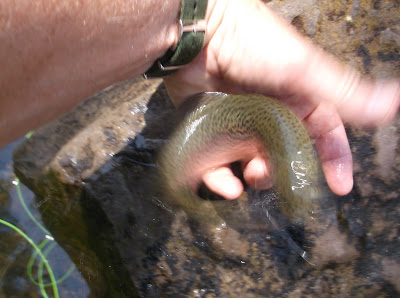I know I’ve shared with you guys on numerous occasions about the trout that is stocked in our Sipsey Tailrace here; but I’ve never really shown you the exact way the trout get released into the tailrace.
First stop after they are
loaded into the refrigerated tanks for transfer to a tailrace or lake, in this
case the Sipsey Tailrace at the base of Smith Lake Dam Tennessee Missouri
After being released from
the tanks the trout travel over a 100 feet down through a 10” pvc pipe to drop
40 plus feet into the cold waters of the tailrace. You would think that this
ordeal would kill most of them, but 99% survive. The water temps in the heat of
the summer never get above 60 degrees and in the winter in the low fifties.
Stocking occurs every month, so there is always an abundance of trout for the
angler to land. A lot of trout reach the 18” mark which is considers a prize.
My largest taken on the Sipsey has been a 16” who knows I may reach that 18” mark one day.
The following clip shows
you the size trout that comes from the Steelville Hatchery in Missouri
This clip
shows the size trout from the Dale Hollow Hatchery in Tennessee Center Hill Lake





































